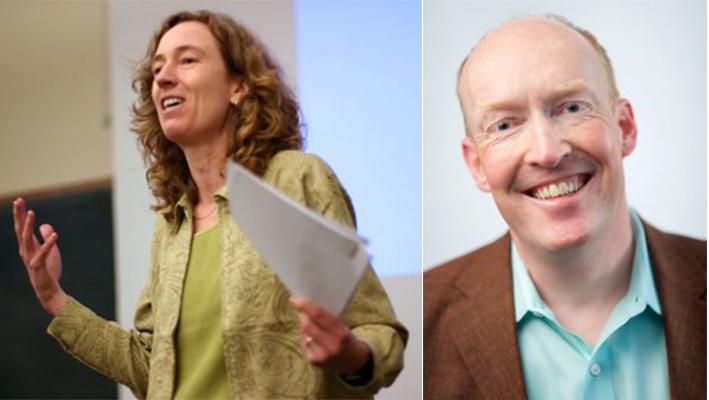
Katharyne Mitchell and Matthew Sparke have received fellowships to study at the Brocher Foundation in Switzerland in fall 2016. The Foundation hosts scientists and experts in ethical, legal, and social implications of the development of medical research and biotechnologies to conduct multidisciplinary research in emerging fields.
Katharyne Mitchell (Geography) and Matthew Sparke (Geography and Jackson School of International Studies) have received fellowships to study at the Brocher Foundation in Switzerland in fall 2016. The Foundation hosts scientists and experts in ethical, legal, and social implications of the development of medical research and biotechnologies to conduct multidisciplinary research in emerging fields.
Both have longstanding ties to the Simpson Center, which has supported earlier stages of their research. Katharyne, who serves on the Simpson Center Executive Board, held the Simpson Professorship in the Public Humanities (2004-2007), a program modeled as an alternative to sabbatical leave, providing deep support for local, community-relevant research. Her community engagement project, Reclaiming Childhood, undertook a collaborative, interdisciplinary examination of the changing nature of contemporary childhood.
Matt has also served on the Executive Board, hosted a Katz Distinguished Lecturer, and participated in the Society of Scholars. This winter, he is co-organizing the January 25 visit of Chris Newfield, a leading scholar of critical university studies, for a lecture on “The Great Mistake: How Private-Sector Models Damage Public Universities, and How They Can Recover.”
In Switzerland, the two will develop a book on the ethical dimensions of new biosecurity technologies and so-called biological citizenship. From their proposal:
New biosecurity technologies that employ genetic screening and associated biomedical innovations in body-scanning and personalized medicine are transforming the ways in which transnational migration is governed around the world. A notable divide is thereby opening up between privileged transnational migrants who are enfranchised as globally mobile biological citizens and a diverse set of disenfranchised others—refugees, asylum seekers, and guest workers—for whom the use of genetic screening and other biosecurity technologies imposes new personal costs, privacy concerns and risks of biological sub-citizenship and exclusion.
Congratulations, Katharyne and Matt!